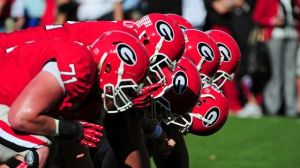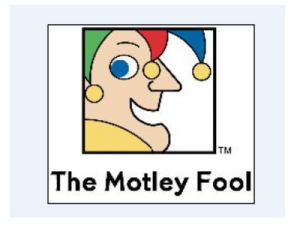I’ve recently gotten hooked on A&E’s TV show Duck Dynasty. The show chronicles the daily lives of the Robertson family of Louisiana, famous for their duck call. This duck call revolutionized duck hunting and has turned into a multimillion dollar business owned and operated by the Robertsons. Having watched most of the first two seasons, the novelty of the show is starting to wear off and its flaws are starting to become apparent to me.
First of all, the show seems painfully scripted. Don’t get me wrong, I’m not the type that’s naive enough to believe that any reality TV show is truly reality, but in my opinion, this is a show that doesn’t need to be. Its obvious that all of the wacky hijinks that the Robertson clan gets into couldn’t just happen to occur while the cameras were in the Duck Commander warehouse. Rather, I think the show plots must come from past occurrences that are passed around the family as Robertson legend, and were simply recreated for the show.
While that is hardly a cardinal sin in television these days, it leads me to my second complaint. The scripting severely limits the show to a static portrayal of a Louisiana redneck family. Some of the situations seen on the show are far too ridiculous to be believable. It seems like every day the guys in the warehouse are up to no good, and I just don’t believe that this business is staying afloat when its only workers are never working. Likewise, Willy can’t possibly have the time to meet with big, national retailers to sign contracts for his duck calls when he’s always having to keep an eye on his warehouse workers or give his daughter terrible driving lessons.
At this point, I get that the Robertsons like to go hunting. I get that they like to catch frogs and eat them. I get that they have crazy, redneck ideas, but as somebody from a somewhat rural part of North Georgia, I don’t think this is anything novel enough to merit a new TV show. What is novel is the fact that these people were able to come up with a top-of-the-line product and turn that into a wildly successful business.
That even seems to me to be the very premise of the show. However, it seems like the writers have gone off on the “rich redneck” tangent. I would be much more interested in learning more about how the business got off the ground and how it operates now. I would like to see more of Willy meeting with representatives from the stores that sell his product. I would like to see more of the guys in the warehouse actually working efficiently. I would like to see less of the guys racing on lawnmowers because they’re rednecks with the means to do so. The Robertsons are inherently interesting people. As soon as the writers realize this and stop trying to fabricate what they imagine will be humorous scenarios, then the show can really delve into how fascinating the Duck Commander story truly is and the show will have enough authentic material to stick around for quite a while.
Quite the busy week but here are some readings nonetheless. The theme of this week is S.E.C. – The Securities and Exchange Commission, the federal agency charged with regulating the financial industry and promoting the health of American stock exchanges, and the Southeastern Conference, the collection of the greatest college football teams in the nation.
“The SEC Conference Championship and Georgia’s Chance to Recast Its Legacy”
Grantland’s John Brandon preivews College Football championship week. Yesterday, Georgia lost in an emotionally taxing game against defending champs Alabama. Brandon compares the equally deep and impressive rosters on both sides. The difference, he notes, is in the teams themselves. “We know Alabama will be mentally prepared, and we only hope Georgia will be.” It’s a little painful to go back and examine this article after the game, because Brandon’s theory that “if Georgia loses, it will cement the Bulldogs into what fans in the South believe them to be — national title also-rans who’ve benefited these past two years from soft conference schedules, a team that always has talent but never enough resolve” is especially biting right now. Maybe its because there’s some truth there?
Anyhow, the game was lost on second half run defense (it seemed like they ran the same halfback draw almost every play) and clock management (we elected to go back out and get another quick pass in instead of spiking the ball and stopping the clock so we had a second to breathe before we attempted the biggest red zone play of the entire season). I certainly hate to be negative about my team and still support them and am proud of them for an amazing season, but I would just really love to see them gain the resolve necessary to play like the team they really are in these big games.
“Is the Stock Market Rigged?”
http://www.fool.com/investing/general/2012/11/29/is-the-stock-market-rigged.aspx
This article from financial blog “The Motley Fool” examines the diminishing trust of investors in the stock market.
“According to data collected by the University of Chicago and Northwestern University, just 15% of Americans trust the stock market, while a study by MFS Investment Management revealed that 40% of 18- to 30-year-olds believe they will never feel comfortable enough with stocks to invest in them.”
The article helps to explain the distinction between the world of Wall Street (brokers, investment banks, and computers capable of buying and selling hundreds of thousands of shares faster than you can blink) and investing.
“Think about it: Wall Street could cease to exist and the stock market could shut down tomorrow, and there would be little effect on the intrinsic value of the holdings in our portfolios. That’s because investors’ money is not beholden to either of these institutions, but has purchased ownership stakes in great non-Wall Street-based companies”
It’s important to not let headlines of scandals, bubbles and dishonesty scare you away from investing in general. They should teach you to keep a critical eye on financial institutions that serve as the intermediary between you, the investor, and the companies you wish to invest in. They should teach you to put diligent research into your investments on your own rather than blindly trusting a stock broker or analyst. They should not scare you away from all stocks for the rest of your life though, because Americans who are now shying away from investing in stocks are “depriving themselves of any relationship to the wealth being created daily by the world’s smartest and most dedicated entrepreneurs.”




